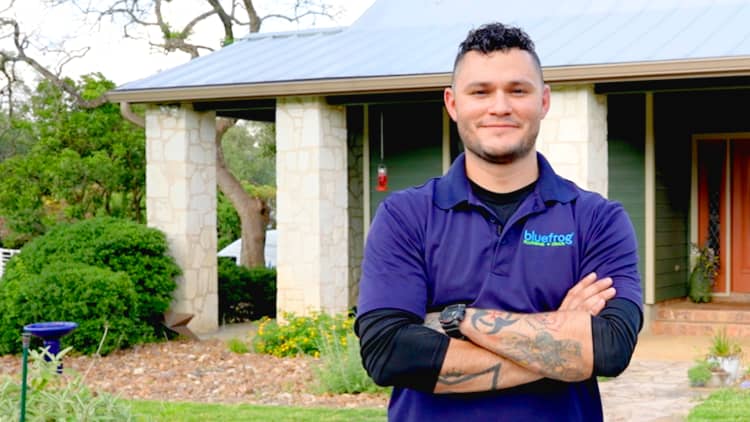When Covid-19 restrictions forced many employees to work from home, the opportunity to work from anywhere, appeared to be just temporary.
Now, over a year into the pandemic, the option to continue working remotely is gaining popularity among employers and employees, who expect the work-from-home policies implemented due to Covid-19 to stick around in some capacity.
For American workers transitioning to or continuing to work remotely full-time, the opportunity to do so outside of the U.S. may be appealing. And countries around the world are offering workers the option to do just that, through remote work programs.
That's according to Remote.co, a website launched in 2016 for companies and employees interested in or already embracing remote work options. Among the 13 remote work programs the site spotlights, remote locations include countries like Barbados, Dubai and even Iceland. Similar requirements including proof of employment, a minimum income threshold and proof of health insurance must be met in order to qualify for all of the programs, but additional fees and documents may be required, as some programs vary by length and price.
CNBC Make It spoke with remote work expert Brie Reynolds, career development manager and coach at Remote.co to get their best advice for workers interested in these programs.
Pay attention to detail
Like most applications, certain requirements may be asked of an applicant during the process that vary from program to program. For applicants looking to apply for a remote position, it's important to follow all the instructions when applying and provide all the requested information.
"Each program has different requirements, so paying attention to details is important," Reynolds says. "Submitting the same information and application to every program simply will not work."
For example, in Antigua and Barbuda's program, applicants must make no less than $50,000 annually, but for Iceland's program, you need to make at least $8,000 a month, which totals $96,000 a year.
Check with your employer before you apply
It's important to talk with your employer about the possibility of working remotely and if participating in a specific country's program is allowed. Simply because the option to work remotely is provided by an employer, that doesn't necessarily mean employees can work remotely from anywhere, as some employers want employees to reside in the same state or within certain areas.
"Some companies are very open about their remote work or work-from-anywhere policies, but if you're not certain about the rules at your company, it's best to inquire before going through the entire application process," Reynolds says.
For self-employed people who work with clients, it's important to consider how working remotely may affect your clientele and your business. That's because many countries offering these programs do not allow remote workers to do business within the host country.
Think about your situation at home before leaving
With the option to get away, you should consider your living arrangements at home before committing to a destination.
"One of the biggest considerations is what you'll do with your current living arrangements. Will you have to pay your current rent or mortgage and for a living situation in the new country? Or could you possibly sublet or rent your regular living space while you're away?" Reynolds explains.
Consider child-care responsibilities
While most public schools in the U.S. will return to the classroom this fall, some public school systems may have some sort of ongoing remote learning program for students.
If you're interested in remote work options and have school-age children, fully online public and private schools should be considered. Some programs also provide the option to enroll in school during your stay.
"Just as you would with any other major life choices, talk to your children about your plans in an age-appropriate way and allow them to have some buy-in and control over appropriate aspects of the adventure you're about to go on," Reynolds explains.
It's important to keep in mind that different programs have different lengths; you'll want to make sure any program you apply to will line up with your work, schooling and child-care needs.
Discuss remote work logistics with your employer
In addition to gaining permission to work in a remote setting from your company, you should consider some specific details like how your work might change if you're in a different country, how a different place might impact your ability to get work done and how family commitments and child-care responsibilities will affect your work days.
Reynolds says these key points should be part of your remote-work program decision:
- Time zone differences and your schedule
- When and how you'll be reachable (which platforms to use for effective communication)
- Asynchronous communication options to keep you in the mix with your team
- Having backup plans in place for potential challenges (internet speed strength)
Sign up now: Get smarter about your money and career with our weekly newsletter
Don't miss: 20 in-demand jobs that can be done remotely—and all pay $100,000 or more
These C-suite jobs pay over $100,000—and they're remote
These are 3 types of employees. Here's the rarest one—and why they outperform everyone else



